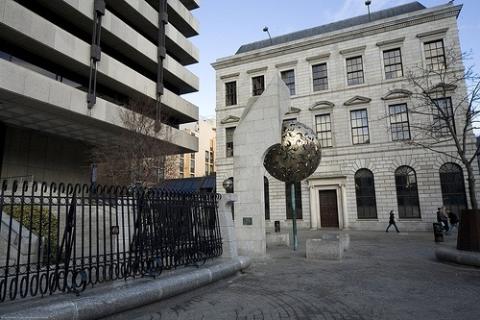Nyberg report points to 'speculative mania' and 'groupthink' of Celtic Tiger

The report of the Commission of Investigation into the Banking Sector in Ireland (Nyberg Report) was published on Tuesday 19 April. Headline excerpts from the report's Executive Summary are below, and the full report is embedded at the bottom of this piece.
"Much points to the development of a national speculative mania in Ireland during the Period [Peter Nyberg's term for the years under scrutiny, mostly the latter part of the 2000s], centred on the property market. As in most manias, those caught up in it could believe and have trust in extraordinary things, such as unlimited real wealth from selling property to each other on credit. Even obvious warning signs went unheeded in the belief that the world had changed and that a stable economy was somehow automatically guaranteed."
"Traditional values, analysis and rules could be gradually less observed by the banks and authorities because their relevance was seen as lost in the new and different world. When it all ended, suddenly and inexplicably, participants had difficulty accepting their appropriate share of the blame for something in which so may others were also involved and that seemed so reasonable at the time.
- International developments did not in themselves cause the crisis though they helped precipitate it. The problems causing the crisis as well as the scale of it were the result of domestic Irish decisions and actions, some of which were made more profitable or possible by international developments. Though eventually unsustainable financial risks were made attractive by outside factors, there simply was nobody abroad forcing Irish authorities, banks or investors to accept such risks. The way Irish households, investors, banks and public authorities voluntarily reacted to foreign and domestic developments was probably not very different to that in other countries now experiencing financial problems. However, the extent to which large parts of Irish society were willing to let the good times roll on until the very last minute (a feature of the financial mania) may have been exceptional.
- The long upswing in the property market, accompanied by relentless media attention, eroded the risk awareness both of banks and their customers in Ireland. Banks, citing the long sequence of good years, generally saw little problem in expanding their lending by allowing credit quality and risk management to gradually erode. Likewise, households and investors had seen their incomes and wealth increase markedly for a number of years; easy access to credit further encouraged belief in a never-ending boom. In essence, both sides of the market assumed that the other side knew what it was doing. This helped ensure continued growth, profitability and funding in the market in the short term. However, this also meant that risk-related brakes on the growth of credit and leverage were weak and were growing weaker over time.
- A majority of the people interviewed by the Commission indicated that they saw no major problems except lack of liquidity until the end of 2007, at the earliest, and autumn 2008, at the latest. The reasons given were usually very similar, the most prevalent being: property prices in Ireland had never decreased markedly; everybody expected a "soft landing" at worst; loan portfolios appeared sound; property credits were diversified by country or county or class; peer banks abroad did the same thing; and "nobody told them" there was a potential problem.
- A minority of people indicated that contrarian views were both difficult to maintain during the long boom and unhealthy to present to boards or superiors. A number of people stated that had they implemented or consistently supported contrarian policies they may ultimately have lost their jobs, positions, or reputations. Other signs were also noted pointing to sanctioning of diverging or contrarian opinions as well as self-censorship because of this. The apparent strength of these expected sanctions is difficult to judge, but the absence of opposition, barring only a handful of identified vociferous contrarians, may have made it easier for institutions to accept toning down the application of vital, tried and traditional prudential practices.
- The Commission considers that this pervasive pressure for consensus may explain why so many different parties in Ireland simultaneously were willing to adopt specific policies and accepted practices that later proved unsound. At the same time, the apparent consensus of banks and authorities around the view that markets remained sound and prospects remained positive gave further comfort to both. A number of banks essentially appear to have followed the example of peer banks in a "herding" fashion; there is little evidence of original critical analysis of the advantages and risks of the policies. Widespread lack of critical discussion within many banks and authorities indicates a tendency to "groupthink"; serious consideration of alternatives appears to be modest or absent."
Misjudging Risk - Causes of the Systemic Banking Crisis in Ireland
BACKGROUND: The former Minister for Finance, Brian Lenihan, appointed Peter Nyberg last July, to examine the failings of the Irish banking industry. Mr Nyberg is a former director-general for financial services in the Finnish ministry of finance. He advised his country’s government in the wake of Finland’s banking crisis at the start of the 1990s, and has also worked for the International Monetary Fund. Mr Nyberg was the sole member of the Commission on the banking crisis. He was supported by a team of 14 Irish investigators.
His is the third official report into the failings of Irish banks which led to the depth of our crisis, following the Regling-Watson report, and another by Central Bank governor Patrick Honohan.
